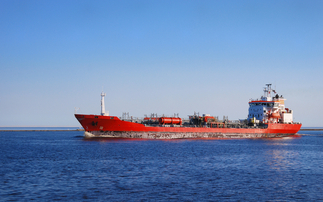Ex Alstom Power chief and chair of Corporate Leaders Group of Climate Change demands new approach to corporate governance to tackle environmental risks
Joubert hopes leadership at board level will also lead to progress on how commercial performance is measured and incentivised. "You already have 1,000 companies now that are using a shadow carbon price," he notes. "The next issue will be water where you are already seeing companies now facing water stress... We will have pricing for CO2 and water and then hopefully for biodiversity, although that is much more complex. If we can have that pricing for CO2 and water we will have solved 90 per cent of the issue."
He adds it would be "great" to see this information included in public profit and loss accounts, but argues that in the short to medium term the use of internal carbon prices is a step in the right direction. "One thing we have try to avoid now is the idea we need to have 100 per cent of this solved," he argues. "If we can solve 50 per cent of the problem we are better off. What you learn as CEO is that life is about choosing priorities."
Shadow environmental pricing also paves the way for executives to make better decisions based on environmental risks and could even lead to wider adoption of renumeration practices that look beyond narrow financial performance. "There could be a big difference for the next generation, but for the people in charge now remuneration is an important factor in determining their action," Joubert argues. "Orientating renumeration is an important way of changing behaviour. And to do that you have to change the way you measure performance."
A fundamental re-think of the purpose of business and governance practices that shape the corporate world is in the pipeline, Joubert insists, and the imminent Paris Summit can help deliver it. In fact, he is adamant it already has. "The summit is already a success," he argues. "It has already achieved two things: firstly, a very high level of awareness and secondly an acceptance that you need to give responsibility to businesses."
These over-arching achievements are backed up by an encouraging shift in the focus of the long-running talks towards delivering national climate action plans, he continues. "The INDC bottom up process represents big progress," he says. "We are still far from the 2C target, looking at 2.7C of warming, but we can say Paris is the beginning of something different. Then, for me, what I am looking at is the pace of revisiting the objectives. It would be ideal if it was a few years and we do not wait another 20 years, as we do not have the time."
A strong Paris Agreement backed by ambitious national action plans makes it much easier for businesses to reform their governance practices and deploy the clean technologies that are already available.
"There is no solution without business, but I am also sure business has the solution," concludes Joubert. "If we look at the power sector, which is the sector I am most familiar with, all the technologies you need to generate electricity without CO2 exist already. We will need more technology in storage and we have plenty of problems still, but nothing requires a trip to the moon. We know how to do this. The question is how do you direct business? You need to give business the rules and the direction and then this kind of transformation is completely possible."
The business world has the vision and the ability to tackle climate change, as evidenced by Joubert and many of his colleagues, all that is required is for political and business leaders to collectively call on the time on the ‘big lie' that allows unsustainable business models to present themselves as successful.
This article is part of BusinessGreen's Road to Paris hub, hosted in association with PwC.









